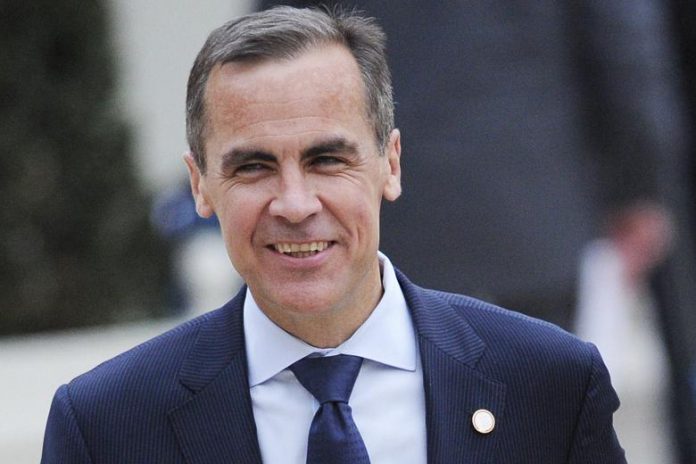Bank of England governor has warned on the uncertainty over Brexit and what this means for UK investment and household spending.
Mark Carney commented as the bank voted to hold rates and cut growth forecasts, saying that Brexit uncertainty “weighs on the decisions of businesses and households and holds down both demand and supply”.
“There is an element of Brexit uncertainty which is affecting the wage bargaining. Some firms, potentially a material number of firms, are less willing to give bigger pay rises given that it is not as clear what their market access is going to be over the course of the next few years,”
“The UK economy is beginning the process of adjusting to a new and as of yet uncertain economic relationship with the European Union.” he said.
“Monetary policy cannot prevent the weaker real incomes likely to accompany the move to new trading arrangements with the EU.
“But it can influence how this hit to incomes is distributed between job losses and price rises, and it can support UK households and businesses as they adjust to such profound change.”
Carney highlighted how many companies have delayed decisions about UK investment and entering new markets.
“Financial markets particularly sterling marked down the UK’s relative prospects quickly and sharply.” he continued.
“Households looked through Brexit related uncertainties initially, but more recently as the consequences of sterling’s fall have shown up in the shops and squeezed their real incomes they have cut back on sending, slowing the economy.
“Businesses have been somewhere in between, but since the referendum they have invested much less aggressively than usual in response to an otherwise very favourable environment.
“In the MPC forecast, uncertainty about the eventual shape of the UK’s economic relationship with the EU weighs in the decision of businesses and households and pulls down both demand and supply.” he added.
John Longworth, the former British Chambers of Commerce director general and co-chairman of the pro-Brexit lobby group, dismissed the numbers and said they must be taken with a pinch of salt, adding the Bank of England are “notoriously bad at forecasting”.

